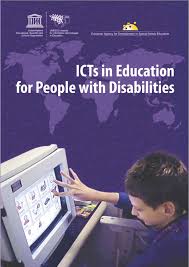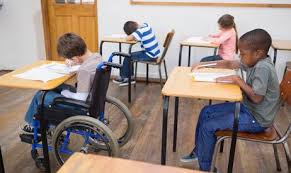THE EFFECTS OF EARLY CHILDHOOD EDUCATION ON THE ACADEMIC PERFORMANCE OF CHILDREN WITH HEARING IMPAIRMENT
Original price was: ₦10,000.00.₦3,000.00Current price is: ₦3,000.00.
ABSTRACT
This study assessed the effect of early childhood education on the academic performance of children with hearing impairments in Oyo East Local Government Area of Oyo State. The study made use of research question as research instrument and sixty (60) respondents were sampled for this study. According to the research findings, it was established that most of the pupils with hearing impairment who engage in early childhood education did perform so well in academic subjects. As a result, pupils who undergone early childhood education do not experience difficulties in understanding concepts presented to them in abstract during lessons. In fact, many of the pupils born with a hearing loss perform the same as the pupil who becomes deaf after acquisition of language in academic performance. Also, many of the pupils with hearing loss generally perform well during examinations but some pupils with hearing loss tend to repeat examination grades before passing to proceed to other grades. The finding shows that most examinations seems to be too overloaded for pupils with hearing loss and hearing loss did not impose difficulties on the learning of most pupils with learning impairment. Also, many of the teachers communicate with their pupils with sign language and have good relationship with the parents of their hearing impaired pupils. Conclusively, most of the pupils have difficulty concentrating and cannot pay attention for long. Most of the teachers encourage mixing with hearing pupils. Also, many of the students have a very strong temper and loses it easily. There are more than average instructional materials and most of their school does not have functional group hearing aid for teaching pupils with hearing impairment.
KEY WORDS: Early Childhood Education, Academic Performance, Children, Hearing Impaired
Description
CHAPTER ONE
INTRODUCTION
1.1 Background to the Study
Having a child in life is a mercy from God, taking care of the child is a responsibility of the parents and the care-givers. The early years of a child are quite important in laying the foundation of adulthood. During this time, children undergo fast growth changes in mental, physical, social, emotional and spiritual development (NACECE, 1999). Therefore, high quality early childhood development and education is needed for all children so that they can become useful elements for the society in the future.
Young and Richardson (2007) stated that early childhood development leads to improved health and wellbeing population and prosperous society. They claimed that early education has a great impact on the physical and mental health and wellbeing in the later stages of life. They continue to argue that in the early years, the experienced brain and biological development sets, basic competence behaviour, and learning that lasts throughout the lifecycle. It also influences how individuals cope and contribute to the society in which they live and work. It is for this reason that every child needs to undergo effective early childhood education to foster holistic development and hence become a useful member of the society.
The importance of education in the early years of a child has been further emphasized the world over and it is particularly outstanding in three documents, that is the Convention on the Rights of children (CRC) of 1989, which states that all children have a right to free education, Conference on the Education for All (EFA) and world summit for children (KISE, 2007). This implies that every child should be provided with education regardless of who the child is in order to give them a firm foundation for their future lives.
A focus on the various parts of the world indicates that every culture has had and still does have the task of socializing and educating their young. For instance in France, women and other members of the family are responsible for the education of the child. With the coming of the industrial development in the 19th century, women sought employment away from home and family. Shelters then referred to as “asylums” were established for the children. These asylums were later integrated into educational systems or nursery schools. Today, the nursery schools are considered essential for greater chances of success in schools (Wangui, 2012). Hence schooling of all children from 2 to 6 years old takes place everywhere (Wangui, 2012. Teachers of the children with Hearing Impairment are consulted on matters of the curricula and assessment procedures (Gregory, 2002). The early enrolment of children in educational programme is recognized to have a great effect on the success of the children in primary schools.
Similarly in the United States of America (USA), educational progress for young children provided enrichment and socialization mainly for the middle and upper-middle income families. Then in the 1960s, the national head-start programme was established for economically disadvantaged children (Cochran, 1993; Wangui, 2012). In USA, Early childhood special education is a blend of early childhood and special education. It concentrates on the development and education of children from birth to eight years (Deiner, 2005). Gregory (2002) states that, the education goal in the USA for majority of deaf children is learning English. Teaching is done using pure auditory-oral methods and signs from the American Sign Language (ASL). Teachers are encouraged to provide appropriate language models and opportunities for learning language in their work with pre-school children with Hearing Impairment.
The enhancement of language for both teachers and children has a great effect on early childhood education on the learners with Hearing Impairment. Although Vygotsky believes that language is crucial to the development of one’s thought processes, concentrating on learning English alone blocks the children from benefiting in other learning areas. While in India, child caring was traditionally a family responsibility until the technological and social development in the 20th century. These brought drastic changes to child rearing and education pattern as family members sought paid labour. This led to pre-schools establishment which enroll children between 2½ to 5 years of age. Unfortunately, they serve children from middle and upper class families as those from low income groups lack awareness and place education as a low priority (Cochran, 1993). According to Chowdhury (2002), pre-school education in India is a neglected chapter. He claims that there is a great deal of confusion regarding programmes in pre-schools. On the same, Gregory (2002) contended that many Asian children with HI suffer considerable frustration and confusion related to their identity leading to problems. She also asserted that hearing Asian parents experience difficulties in instilling values, behaviour and knowledge in their children with Hearing Impairment.
In support Chowdhury (2002) points out that 60% of children under six years are left in each other’s care in India and lose out on proper stimulation and educational opportunities. Thus, the underprivileged child such as the one with Hearing Impairment suffers insurmountable education handicap from the time he/she is born due to lack of early care and education. The objective of the pre-schools in India is mainly to prepare children for primary education and provision of nutrition and care. Those with disabilities (below 5 years) are referred to district hospitals as there are no government programmes at village level to meet the special needs of children with disabilities. Those above 5 years are referred to mainstream schools. Children with disability are thus not accepted in pre- school although identification and referral is one of the components in the training of the workers (UNESCO, 1997). This theory shows that the young children with hearing impairment are not exposed to early childhood education and thus they are denied its benefits or effects such as instilling of various skills at the appropriate age. Similarly, Australia’s pre-primary services are the responsibility of state governments. The pre-schools are available only to children in the year before school entry. Most of them offer half- day sessions per week and are closed during the school holidays (Cochran, 1993).
Chile on the other hand, aims to expand the coverage of pre-school education of children between 0-6 years. Her pre-school educational system plays a major role in integrating children with special needs (UNESCO, 1997). In the past, education of children in the African community setup was paramount and a community affair. This was done at an early age through stories, riddles, tongue twisters, proverbs and on-job training. However, this order has been interrupted by socio-economic and socio-cultural changes. These have led to broken extended family systems with dire consequences on the positive development of the child and education.
Education in the African setup has also been affected as a result of children being born and growing under extremely difficult conditions due to rapid social and environmental transformation which has given rise to socio-cultural disintegration. The traditional setup has considerably changed due to various factors which include; increased number of women in labour force and households headed by women (NACECE, 2000). On the other hand, men have moved to urban areas, mines or large-scale farms for wage employment thus dumping their traditional roles of overseeing family duties. Africans have also been affected by wars, population growth and rapid urbanization adding to problems of provision for children, childcare and informal education practices making the condition of children pathetic. For instance, Ethiopia and Sudan have had years of drought, which have taken toll on the children. These interruptions made it necessary to equip the children with formal education and care in central institutions leading to establishment of the Early Childhood Development and Education (ECDE) centres (NACECE, 2000). In Zimbabwe, education of children with hearing impairment started in 1940s and this education is on the rise (Gregory, 2002).
In Nigeria, education and socialization of the young took a natural process carried out by members of the extended family. Members of the family lived together and thus monitored the growth of children. They enforced rules, discipline and apprenticed them in what they would be occupied in as adults. However, the introduction of the cash economy and changed settlement patterns, have eroded the stable and secure environment within which the child grew up (Raheem, 2017). This study sought to find the effects of early childhood education on the academic performance of children with hearing impairment.
1.2 Statement of the Problem
Despite the fact that early childhood development and education plays a major role in the holistic development of children in Africa, it is not yet effective as many Nigerians do look at children with a particular impairment as useless elements of the society. This denies the children an opportunity to be exposed to enriched environments in pre-school during their critical stage of development, that is, 3-6 years. During this time, the learners are most receptive to learning new experiences. Lack of exposure to early education for children with hearing impairment has made it believed to many parents that it is difficult to train children with hearing impairment educationally. Therefore, the researcher takes it as responsibility to research on the topic: “The effects of early childhood education on the academic performance of children with hearing impairment.”
1.3 Purpose of the Study
The main objective of this study is to assess the effects of early childhood education on the academic performance of children with hearing impairment and suggest appropriate panacea which will assist the students with hearing impairment towards academic performance in their study.
1.4 Research Questions
The study attempted to answer the following questions:
- What is the enrolment trend of children with hearing impairment for early childhood education?
- What type of early childhood education is provided for children with hearing impairment?
iii. What are the roles played by teachers and parents in early childhood education for children with hearing impairment?
- What are the constraints in the academic performance in early childhood education for children with hearing impairment?
1.5 Significance of the Study
The prominence of this study can never be underestimated as it will benefit different people or group among who are the school management, government educational inspectors, students, the teachers, ministries of education, educational administrators, policy makers and stake holders in education. The study will acquaint the educational administrators to the impact of early childhood education for the hearing impaired children.
It will also assist the students to know the impact of early childhood education for the hearing impaired children.
The study will also give all necessary information to the ministries of education and the government the details of the impact of early childhood education for the hearing impaired children. The study will enable educational administrators, policy makers, and stake holders in education to formulate policies, make decisions and draw valid conclusion on the impact of early childhood education for the hearing impaired children.
Finally, the study will enlighten the entire society about the effects of early childhood education on the academic performance of children with hearing impairment.
1.6 Scope and Limitations of this Study
This research work examines the impact of early childhood education for the hearing impaired children. The scope of this study will be limited to Oyo East Local Government Area of Oyo State. This research work covers all secondary schools in Oyo East Local Government. However, four secondary schools will be visited for research.
1.7 Operational Definitions of Terms
- Effects: This refers to the extent to which early childhood education services have been effectively provided to pre-school children with hearing impairments and the notable changes it has brought about.
- Care givers: This refers to all the people providing various services to the young children of ages 3-6 years, in schools. These include teachers, house mothers and class assistants.
iii. Early childhood education: This refers to educational experiences/curriculum offered to children at pre-school level.
- Hearing Impairment: This refers to hearing disorders affecting children during their early childhood.
- Education: In this study, it means the process of imparting knowledge into learners in an environment dedicated for learning
vi: Performance: This means the result of the learners which is often seen after a term of session
viii: Children: In this research, it refers to young ones who are below age ten
- Local Government: This is the smallest government unit headed by a chairman






Reviews
There are no reviews yet.